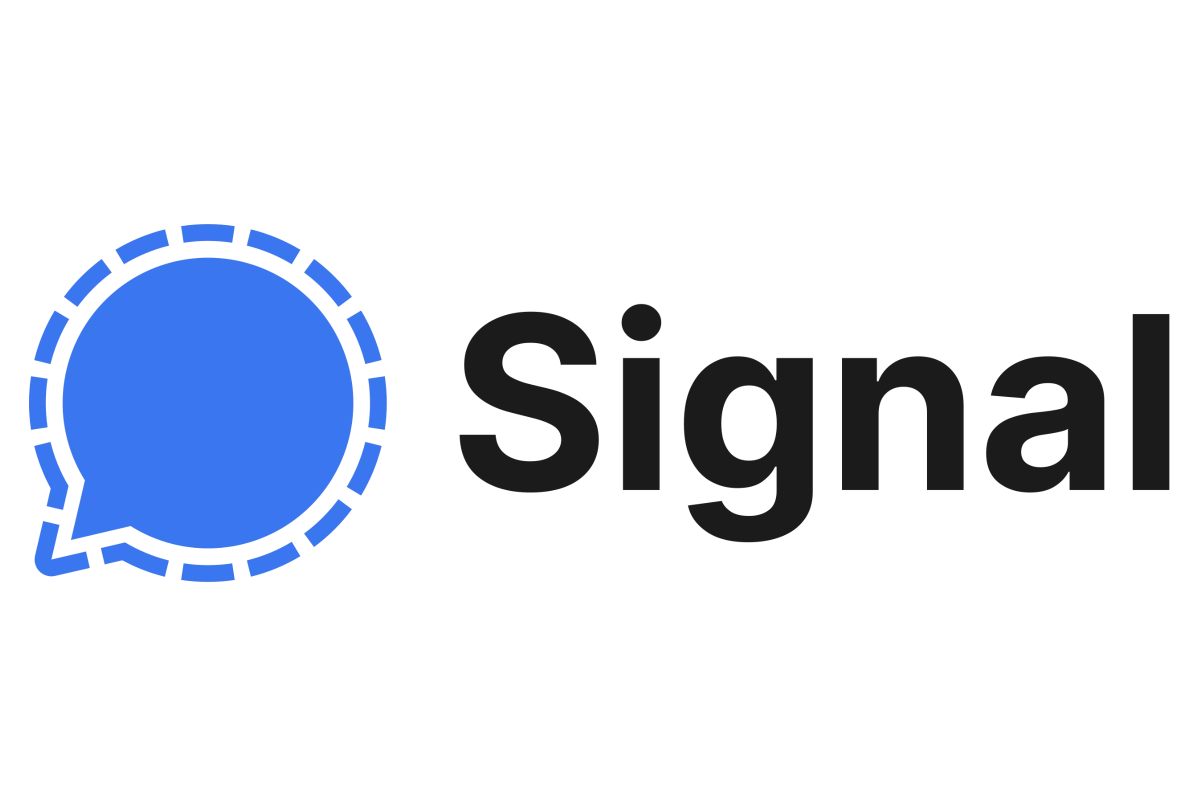
On February 16, 2025, users on X (formerly Twitter) discovered they could no longer share links to Signal.me, the contact domain of the encrypted messaging app Signal. The block came abruptly, leaving many questioning the rationale behind restricting access to a tool heavily relied upon by federal government workers, journalists, and privacy advocates.
This move coincided with Elon Musk’s appointment as the head of the Department of Government Efficiency (DOGE), a newly formed agency tasked with streamlining federal operations and improving inter-agency communication. While Musk has remained silent about the Signal ban, the decision aligns with DOGE’s broader efforts to centralize government communication channels and reduce the use of unmonitored, decentralized messaging platforms.
Signal: The Government’s Go-To App for Secure Communication
Signal has long been favored by federal employees for its robust, end-to-end encryption. Government workers across agencies like the Department of Defense, the Cybersecurity and Infrastructure Security Agency (CISA), and even USAID have used the app to communicate securely, especially when discussing sensitive or classified matters. CISA, in fact, recommended Signal as part of its 2024 guidelines to protect against state-sponsored cyber-attacks following a series of high-profile breaches.
The app’s popularity extends beyond government circles. Journalists, activists, and whistleblowers depend on Signal’s encryption protocols to protect their communications from surveillance. Its open-source architecture and commitment to privacy have earned it the trust of civil liberties groups and tech experts worldwide.
Musk’s DOGE and the Push for Centralized Communications
As the head of DOGE, Elon Musk has repeatedly emphasized the need for streamlined, secure, and trackable communication within the federal government. One of DOGE’s first initiatives was to implement a centralized communication system to improve operational efficiency and data retention compliance. Signal’s auto-delete feature, while useful for privacy, poses challenges for agencies legally required to maintain certain records.
Musk’s own statements about privacy and national security have added fuel to the speculation surrounding the Signal block. In a December 2024 interview, he expressed concerns about “unauthorized backchannels” and stressed the importance of communication platforms that “serve the public interest and uphold legal standards.” Blocking Signal links on X might reflect DOGE’s broader strategy to direct federal workers toward government-sanctioned communication tools.
Privacy Advocates Sound the Alarm
The Signal block has sparked concern among privacy advocates and digital rights organizations. The Electronic Frontier Foundation (EFF) and Access Now have condemned the decision, arguing that restricting Signal links limits free expression and sets a dangerous precedent for social media censorship.
“Signal is more than just an app; it’s a critical tool for journalists, activists, and even government officials who need secure, private communication,” said Sarah Thompson, a senior analyst at Privacy First. “Blocking its links on a major platform like X sends a chilling message about the future of privacy in public discourse.”
The Bigger Picture: Government Communication in the Digital Age
The decision to block Signal links raises broader questions about the intersection of government communication, privacy, and social media platforms. Musk’s dual role as DOGE’s leader and X’s owner creates an unprecedented overlap of public and private influence over information flow.
While DOGE aims to improve efficiency, critics warn that increased centralization could erode privacy protections. If government workers are forced to abandon apps like Signal, they may lose critical safeguards against surveillance and hacking threats.
What Happens Next?
For now, Signal remains accessible through direct downloads and other social media platforms. Users determined to share Signal.me links on X have resorted to workarounds, such as URL shorteners and QR codes.
Meanwhile, watchdog groups are pushing for transparency from both DOGE and X regarding the rationale behind the block. As the federal government grapples with communication security in an era of evolving digital threats, the Signal ban may be just the first step in a larger shift toward more centralized, government-approved messaging platforms.
Whether this move enhances national security or undermines privacy remains to be seen. But one thing is clear: the battle over secure communication in the age of DOGE has only just begun.
Key Takeaways
- X blocks all Signal messaging app links, restricting access to the secure platform
- The block coincides with Musk’s role in federal government restructuring
- Signal continues to operate independently despite X’s link restrictions
Overview of the Controversy
X, formerly Twitter, is blocking links to Signal.me, raising concerns about digital privacy and communication access for federal workers. The block affects thousands of government employees who rely on Signal for secure messaging.
Elon Musk’s Role and Motivations
Elon Musk leads DOGE (Department of Government Efficiency) while controlling X. His platform now blocks Signal links, limiting access to the encrypted messaging service.
His previous support for Signal in 2021 contrasts with his current actions. Musk tweeted “Use Signal” that year, joining privacy advocates like Edward Snowden in endorsing the app.
X’s link-blocking extends beyond Signal. Musk confirmed the platform deprioritizes all posts containing external links to reduce spam and malicious activity.
Government Dependency on Signal
Federal workers increasingly use Signal for secure communications. The app’s strong encryption makes it a preferred choice for sensitive government discussions.
Nearly 10,000 federal employees face job losses through DOGE’s agency reduction efforts. Many of these workers rely on Signal to communicate about their situations.
The block creates significant challenges for government personnel who need secure messaging options. Signal offers features essential for protecting sensitive communications that alternative platforms may not provide.
Implications for Security and Privacy
X’s blocking of Signal links raises significant concerns about secure communication channels and digital privacy rights. The platform’s actions affect both government employees and private citizens who rely on encrypted messaging.
Encryption and Privacy Concerns
Signal’s end-to-end encryption provides essential protection for sensitive communications. The app’s growing adoption by federal workers demonstrates its effectiveness in securing confidential information.
The blocking of Signal links on X limits access to secure communication tools. This restriction could push users toward less secure messaging platforms.
Many privacy experts view X’s actions as potentially dangerous for digital rights. The platform’s decision may compromise the ability of individuals to protect their private conversations.
Security Research and Signal’s Role
Signal has established itself as a leader in secure messaging technology. The platform’s open-source nature allows security researchers to verify its encryption methods and identify potential vulnerabilities.
The messaging app’s board includes prominent cybersecurity experts and privacy advocates. Their oversight helps maintain Signal’s high security standards.
Recent government scrutiny of Signal’s infrastructure has sparked debate among security professionals. These investigations highlight the platform’s critical role in protecting sensitive communications.
Several security firms recommend Signal as a primary tool for protected messaging. The app’s proven track record makes it valuable for both personal and professional use.
Response from the Tech and Government Sectors
Signal’s user base has expanded significantly among federal employees seeking secure communication channels, leading to intense reactions across social media and innovative adaptations by government workers.
Reactions on Social Media Platforms
Tech leaders and privacy advocates have criticized Musk’s decision to block Signal links on X. Representatives from Electronic Frontier Foundation posted that the move threatens digital privacy rights.
Facebook and other platforms have seen increased discussions about alternative secure messaging options. Notable responses include:
- Privacy-focused tech companies offering free Signal alternatives
- Cybersecurity experts sharing guides for bypassing X’s link restrictions
- Government transparency advocates organizing digital protests
Federal Workers’ Adaptation Strategies
Federal employees have developed new methods to maintain secure communications despite X’s Signal link restrictions. Many workers now share Signal contact information through encrypted email services.
Government departments have updated their internal communication guidelines. Several agencies now recommend:
- Using official .gov emails to share Signal credentials
- Implementing department-specific secure messaging groups
- Creating dedicated Signal channels for team communications
Tech-savvy federal workers have started using URL shorteners and creative text formatting to bypass X’s link detection system.
Frequently Asked Questions
The Signal app blocking on X has sparked concerns about privacy, secure communications, and the impact on federal workers using encrypted messaging platforms.
What reasons has Elon Musk given for blocking links to the Signal app on certain platforms?
X has not provided official explanations for blocking Signal links. Users attempting to share signal.me links receive generic error messages indicating technical issues.
The blocking started on February 16, 2025, affecting all signal.me URLs across the platform.
How has the use of Signal by federal government workers impacted platform policies?
Federal workers have increased their Signal usage following recent government agency changes. Many of the 10,000 discharged federal employees use Signal for secure communications.
The platform’s link blocking coincides with Musk’s role as head of DOGE (Department of Government Efficiency).
What measures are being taken to ensure secure messaging for government communication?
Federal agencies maintain strict encryption standards for official communications. Many departments use multiple approved secure messaging platforms.
Security protocols require regular updates and assessments of communication tools.
How are users responding to the restrictions imposed on the Signal app by various entities?
Users express frustration about X’s link blocking through social media posts. Many are sharing alternative methods to connect on Signal.
Tech journalists and privacy advocates have criticized the restriction as contradicting X’s stated free speech principles.
What alternatives to the Signal app are available for secure messaging?
WhatsApp offers end-to-end encryption for messages and calls. Telegram provides secret chats with encryption features.
Matrix and Session serve as decentralized messaging options with strong privacy features.
How do these actions align with privacy and cybersecurity guidelines for federal communications?
Federal guidelines require secure, encrypted communications for sensitive information. Signal meets many government security requirements through its end-to-end encryption.
The platform blocking raises questions about access to security tools for government personnel.

